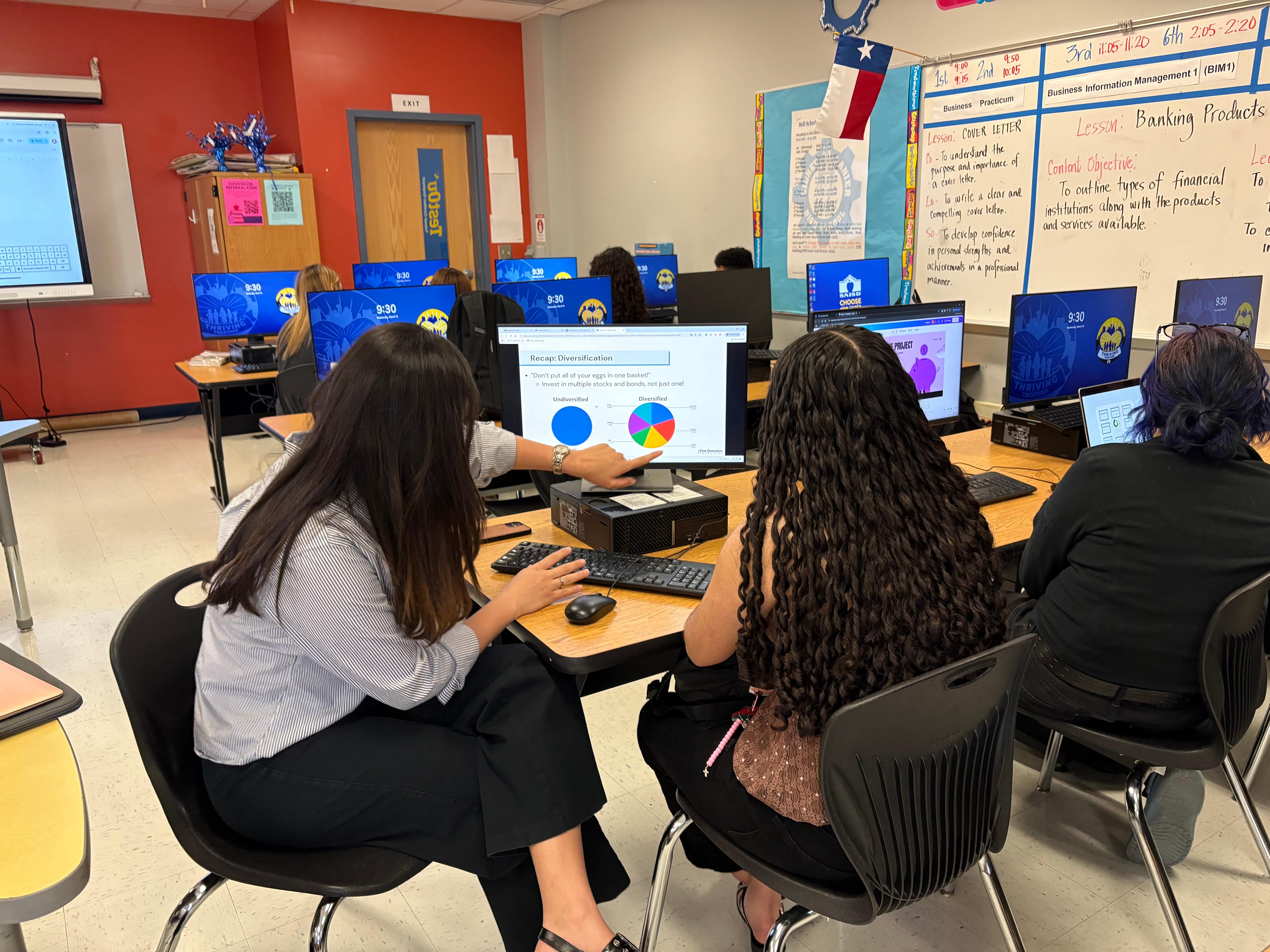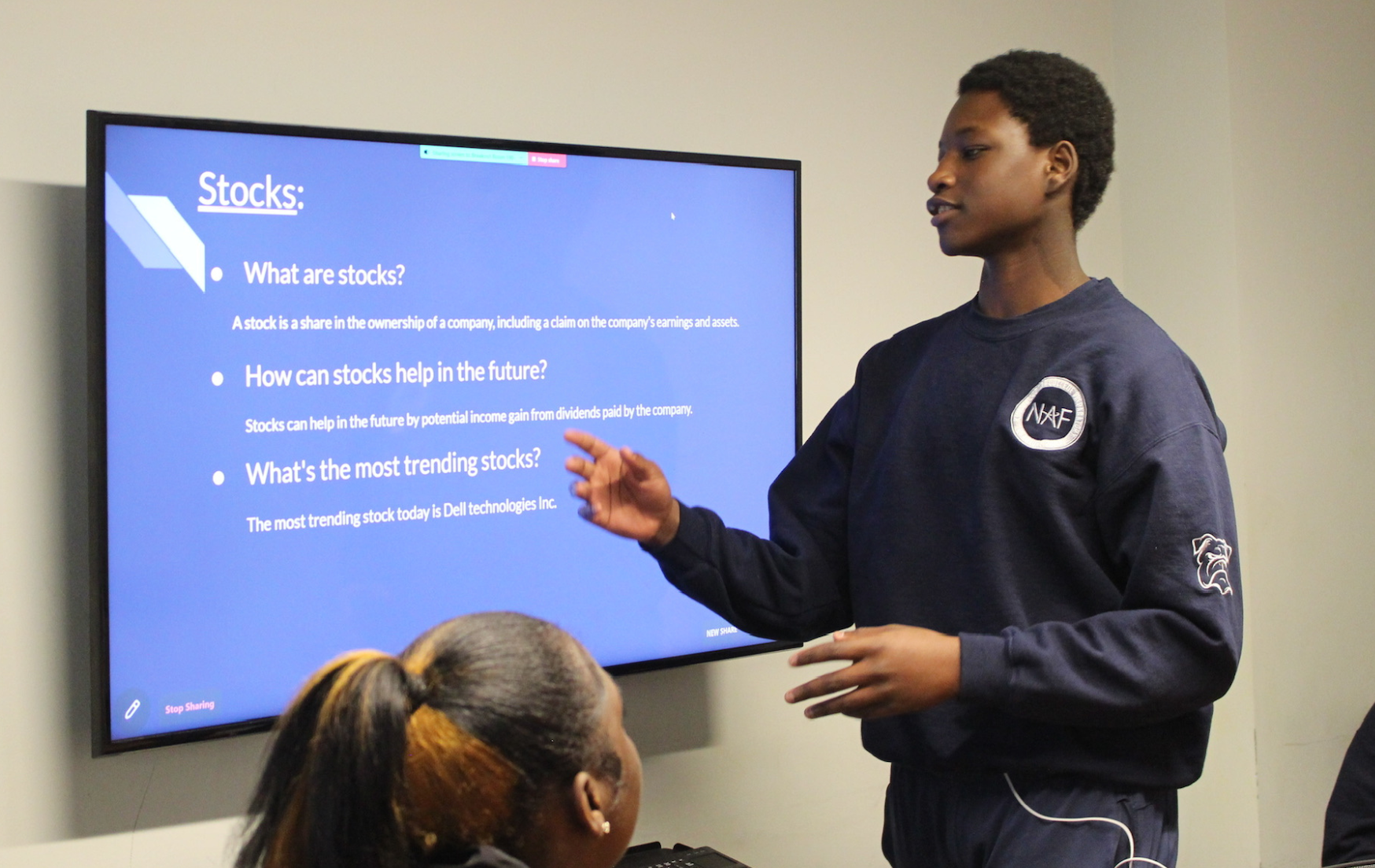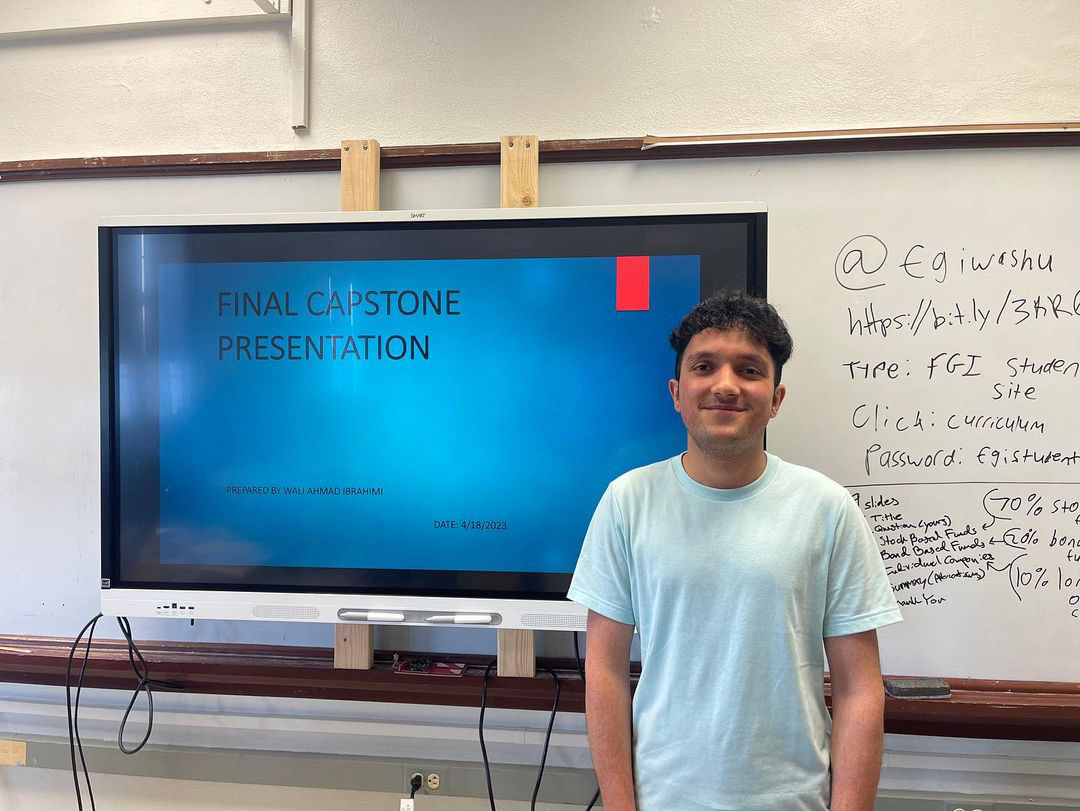How The Program Works
FGI partners with schools to deliver an 8-session long-term investing course that uses real money to bring lessons to life. Students gain financial literacy, build confidence, and begin forming long-term investing habits.

Partner
First Generation Investors collaborates with high schools and organizations that support high school students. We select school partners based on their students’ needs and interest in economics and investing. Partner schools commit to helping their students complete an 8-session course designed to build a strong foundation in these subjects.
.jpeg)

Facilitating
In partnership with school staff, college volunteers deliver interactive lessons about long-term investing.
Topics include:
What is a stock?
Compounding interest
Volatility and diversification
Mutual funds and ETFs
Dollar-cost averaging
Investing
Students who complete the program receive $100 to invest in a select set of mutual funds.
Upon graduating high school and turning 18, positions are transferred to the students own brokerage accounts.

How Students Access Their Investments
Students are eligible to receive their account once they meet the following criteria:
Attend at least 6 of 8 FGI sessions
Submit their Capstone Project according to the guidelines by the given deadline.
Graduate high school
Turn 18 years old
Claiming Accounts
Once students turn 18 and successfully complete the FGI program — including submitting their capstone project—they can claim their shares by following our transfer request process. Eligible students will receive a link to begin the process sent to the personal email address they provided to FGI upon finishing the program.
Note that it may take up to 30 days for the shares to be transferred into the new account. Please email us with any questions or issues: contact@firstgenerationinvestors.com.

A Typical FGI Session
A typical FGI session consists of the following:
Students and tutors break into small groups and review the previous week’s topics.
Tutors teach a new concept, such as bonds, compounding interest, and funds.
Tutors and students review material for the Capstone Projects.

